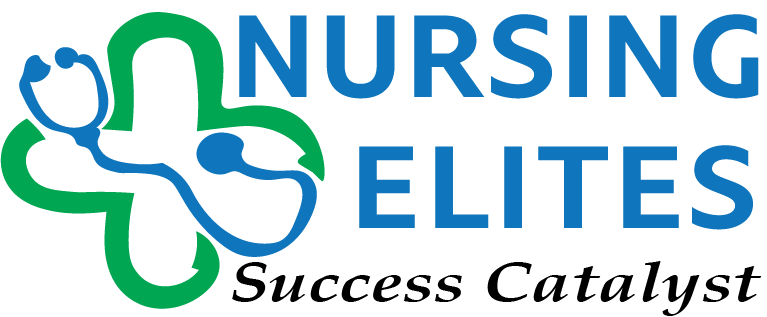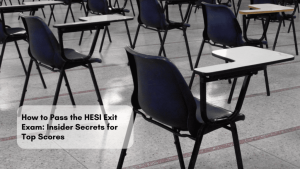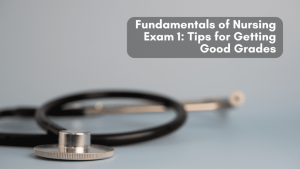Research shows that more than half of nurses in Texas are registered nurses (RNs). The Texas Nursing Jurisprudence Exam (NJE) tests applicants’ knowledge of the state’s legal and ethical nursing requirements and the implications of breaking the set rules. Before prospective RNs are licensed to practice in the Lone Star State, they must complete the NJE. Our nursing jurisprudence exam experts explain the fundamental concepts tested in the NJE and the scoring method used in the exam. If you need help with your NJE, we can help you do it undetected if proctored or as a take-home exam.
Key Sections and Questions in the NJE Exam
The Texas Nursing Jurisprudence Exam has 50 multiple-choice questions on the rules, regulations, and doctrines of nursing. These questions reflect the current legal requirements in chapters 301, 303, and 304 of the Texas Occupation Code stipulated in the Nursing Practice Act.
Exam takers get a maximum of two hours to answer all questions in the NJE and submit the answers for final grading by the system. Each exam session must be in a single sitting, meaning once students start answering the questions, they must complete the paper or redo the test from the beginning.
The main sections covered in the NJE exam include:
Standards of Nursing Practice
This section of the NJE tests understanding of the basic acceptable nursing standards in Texas. It also examines students’ knowledge of the different roles of the Texas Board of Nursing in regulating nursing practices within the state. Overall, the questions in this section cover:
- The Texas Practice Act rules and regulations, including the local, state, and Federal laws on nursing practices.
- Appropriate procedures to follow when administering treatment, whether noting signs and symptoms or allocating the proper medications.
- Client privacy and protection rules and the mandatory Texas Occupation Code reporting procedures.
- Collaboration parameters with patients and other team members without discriminating against them based on race, gender, religion, sexual orientation, and other social parameters.
Ethical and Legal Issues in Nursing Practice
The ethical section examines prospective RNs’ ability to uphold ethical and moral standards in daily operations and interactions. The concepts tested in this section examine nurses’ ability to exercise dignity, confidentiality, and privacy in the workplace. It also examines if prospective nurses can advocate patients’ rights and be accountable for their actions or inactions in the workplace.
Professional Boundaries and Unprofessional Conduct
The third section of the Texas Nursing Jurisprudence exam talks about acts of misconduct in the workplace. Specifically, questions from this section examine knowledge of the different honorable and dishonorable acts towards patients and other colleagues, as stipulated in the Texas Administrative Code Rule 217.12.
Potential topics tested here might be related to unsafe practicing acts, such as but not limited to:
- Failure to conform to minimum nursing standards, like following treatment guidelines and services, causing physical and emotional damage to patients.
- Inability to perform registered, vocational, or advanced nursing practice duties like supervising junior colleagues or delegating functions.
- Improper patient record management, like falsifying reports, documents, and agency records.
- Accepting or delegating assignments to inexperienced healthcare workers, leading to unsafe healthcare experiences.
- Sexual acts with clients, whether by touching them inappropriately, using suggestive language, or asking for sexual favors.
- Threatening clients or colleagues or engaging in violent acts at work.
- Accepting or soliciting bribes from patients or third parties in exchange for professional services or connections
Texas Nursing Jurisprudence Exam Testing and Scoring Method
After paying the initial required fee, applicants can access the NJE from the Board of Nursing (BON) website. During the exam, students can research answers to the questions from various online resources, including the BON website, on a separate window.
Once a student completes and submits the exam, the system automatically assigns them a score based on their performance. The minimum grade required to pass the Texas Nursing Jurisprudence exam is 75%, which translates to 38 correctly answered questions out of the total 50 examined items.
Furthermore, all applicants receive a certificate to print and store at the end of the exam. If the candidate passes the NJE, their score is recorded and forwarded to the Board Staff for filing. On the other hand, failed results are recorded in the BON system if 13 or more questions are incorrect, the exam time elapses, or the process gets interrupted by poor signals.
In cases where students get interrupted while taking the exam, they may retake the exam after 24 hours elapse. Also, students can retake the exam as many times as required to get a satisfactory score.
The Texas Nursing Jurisprudence Exam: The Final Thoughts
Before sitting for the Texas Nursing Jurisprudence exam, applicants should familiarize themselves with the course content to avoid failure. Resources like the Texas Board of Nursing website and the Nursing Practice Act can help applicants become more conversant with the tested content in the exam. Our exam experts can help students take the Nursing Jurisprudence Prep Course in preparation for the exam.





Pingback: Nursing Jurisprudence Exam